What could be more spiritual than not knowing? What could be more spiritual than an open, wandering, curious mind? Spirituality is not inherently religious, and in fact, I think it is something that the most atheistic of people can practice and hold.
Note: this essay on secular spirituality is not meant to disprove religion or any belief systems! This essay is an exploration of how inclusive and present spirituality is. This is not to say that it is wrong to be religious, and it isn’t to say that being religious is not spiritual. I myself am not religious, but I do have non-secular spiritual beliefs as well. I believe this essay is for the religious, the atheists, the agnostics, and the somewhere in-betweeners like me. The essence of this essay is curiosity - which, as you will read, is what I think spirituality is all about.
The religious way to interpret the “spirit” is to think of the soul, which is to relate to an ethereal, otherworldly heaven or god figure. But if we explore other definitions of spirit, as shown above, all taken from the Merriam-Webster dictionary, I think we can find another meaning.
The spirit is a nonphysical part of a person that is not necessarily connected to a god, but is the things we don’t physically see: the mind, morals, contemplation, reflection, and curiosity.
When we see two people engaged in animated or embodied conversation, we may call them “spirited.” This does not mean they are speaking of god necessarily, but that they are speaking with passion. Using this definition, “spirit” can be a state of being that is fully present and encompassing.
The spirit of a person isn’t necessarily something godly or heavenly. For some, it might be. But I believe that everyone, no matter their beliefs or practices, has a spirit.
With this definition of “spirit,” “spiritual,” then, just means a way to describe something that is spirited.
I personally love the definition of spirituality from Sarah E. Koss and Mark D. Holder: “a feeling of connectedness to something greater than oneself, experienced through cultivated to one’s community, one’s environment, and one’s perception of the transcendent.”
Another definition in the Merriam-Webster dictionary is, “of or relating to sacred matters.” What does sacred mean, then? Of course, one definition is tied to religion.
If spirituality is simply a feeling of connection, then we can label anything that helps us feel connected as “sacred.”
“I saw that there’s no word for ‘spiritual’ in the Hebrew scriptures (also called the Old Testament). So basic, and yet so revolutionary. There’s no word for spiritual, because to call something spiritual would be to imply that other things aren’t. In the Bible, everything is spiritual. All of life.”
― Rob Bell, Everything Is Spiritual: Finding Your Way in a Turbulent World
Things I Find Sacred:
An oat milk vanilla latte made at my favorite local coffee shop.
Purchasing and admiring art from a local vendor at a market.
An inside joke that doesn’t end, that makes you giggle for far too long.
A hot bath with epsom salts after a long day.
Seeing the first sprouts of spring.
A poem that writes itself and leaves me in awe of how my brain arranged those words to mean exactly how my heart felt.
Reading a book that feels like it was written for me.
When my husband gives me a hug in his sleep.
Seeing the first unraveling of sunrise and the final descent of sunset.
The feeling of a breath so deep that it touches every ribcage.
A song that always makes me feel less alone when I listen to it.
The way that mushrooms just grow from nothing and become something.
Not Knowing Doesn’t Mean You’re Not Spiritual
There is such limitation to believing that we know the mysteries of the universe, that we can see the unseen things, that we have figured out the unfigure-outable, and even more when we presume to know what is right and wrong for other people. (This especially applies to a government that uses a certain mythology to decide other people’s rights and legal abilities, but that is another point for a different time.)
Not only does assuming to know what we will never truly know limit us, but it also can harm us. It strips us of opportunities to think critically, be open-minded, and engage in the joy and the gift of seeking and pondering, it also limits our ability to live in this life.
Simone de Beauvoir wrote, “The divine law is imposed upon her only from the moment she decides to save her soul.” To this I ask, save for what?
When the goal of this life is to be solely focused on a mythical afterlife, what does that leave us with when we are actually living?
“They have denied death, either by integrating it with life or by promising to man immortality. Or, again, they have denied life, considering it as a veil or illusion beneath which is hidden the truth of Nirvana… It has been a matter of eliminating the ambiguity by making oneself pure inwardness or pure externality, by escaping from the sensible world or by being engulfed in it, by yielding to eternity or enclosing oneself in the pure moment.” - Simone ee Beauvoir
I am not saying that beliefs in eternal life akin to the Christian mythology of heaven are wrong - and yes, it can be jarring to read ‘Christian mythology,’ and it’s a phrase I use intentionally. There are many religious and creation myths in the world across time. Categorizing it as one of many mythologies does not disrespect this one of many - it instead extends inherent value to all of them.
I highly recommend this piece by milk fed about the topic of how we center Christian religion(s) in our lives even when we ourselves are not Christian.
Not knowing doesn’t mean you’re not spiritual. And being sure also doesn’t inherently make you more spiritual.
In his book Everything Is Spiritual: Finding Your Way in a Turbulent World, Rob Bell wrote, “Curiosity is underrated. In many ways, it’s the engine of life. You get these questions, and they don’t go away. And so you follow them, you set out to answer them. And you get answers. And those answers, of course, lead to new questions. And on and on it goes.”
If curiosity is spiritual, then the more we don’t know, the more spiritual we are.
Creativity is Curiosity (which is spiritual)
Rob Bell wrote that connection is what makes creation. He also writes that “spirit is inherently creative.”
“My soul, when I tend to it, is a far more expansive and fascinating source of guidance than my ego will ever be, because my soul desires only one thing: wonder. And since creativity is my most efficient pathway to wonder, I take refuge there, and it feeds my soul, and it quiets the hungry ghost—thereby saving me from the most dangerous aspect of myself.”
― Elizabeth Gilbert, Big Magic: Creative Living Beyond Fear
If we are all inherently creative, as Elizabeth Gilbert strongly believes and shares in her incredible book, Big Magic (I couldn’t recommend this book enough - my copy basically has every sentence highlighted), and if being creative means being curious, and if being curious means being spiritual, then this is just more proof that spirituality can be secular.
On Atheism and Morality
In her book, The Ethics of Ambiguity, Simone de Beauvoir, explores what it means to not center a god in the search for morality, but to use ourselves as our guide.
Note: de Beauvoir writes from the perspective of calling humans “man,” which was common for her time. Just for fun, I decided to switch all references of him/his to her/hers and man to woman.
De Beauvoir argues that our being, our creation, our existence, inherently has no meaning or implication for a higher existence. “Her being is lack of being, but this lack has a way of being which is precisely existence.” In other words, in labeling our existence, which previously meant nothing until we labeled it, we begin to create meaning.
“To attain her truth, woman must not attempt to dispel the ambiguity of her being but, on the contrary, accept the task of realizing it.” Instead of spending time looking outwards (and upwards) to gain guidance and insight on the life we should lead, de Beauvoir suggests that the morals we are seeking exist inside ourselves. “She will understand that it is not a matter of being right in the eyes of a God, but of being right in her own eyes.”
There is often a shared belief in religious realms that, in order for someone to be moral, they must be of a certain religion (AKA the same religion as us). But if de Beauvoir is correct in saying that “the truth is that outside of existence is nobody,” then looking outside our own existence, or at least the evidence of existence in general, for meaning is futile.
“She bears the responsibility for the world, which is not the work of a strange power, but of herself.” —Simone de Beauvoir
Kierkegaard’s Three Spheres of Existence: The Fulfillment
Let’s keep going back in time a bit and visit Soren Kierkegaard and his writings on the three spheres of existence. Like him and his work, we will be focusing on the third sphere.
The aesthetic: the sphere of immediate perception. It is more concerned with a person’s senses, experience, and imagination, and is focused on and through the self.
The ethical: the sphere of what’s required. This is the universal perception. It focuses on logic, understanding others, and communication.
The religious: the sphere of fulfillment. This sphere connects the individual and universal experience. This is the sphere attached to faith. It is considered to be the highest stage in the human existence.
Kierkegaard asserted that total faith in God is what makes life worth living and stated that faith is for things that lack evidence, proof, and logic.
The author of the essay Overview of Kierkegaard’s Thought writes, “For Kierkegaard, the impulse towards an awareness of a transcendent power in the universe is what religion is. Religion has a social and an individual (not just personal) dimension.”
However, it is possible to have faith (and fulfillment) in things that are not religious.
Things I have faith in, that are not a god:
No matter how dark and long the nights in winter last, spring will always come and the sunlight will always brighten the earth again.
Despite the myriad of disagreements, miscommunications, or just bad attitudes my husband and I might have, we will always work together to flourish and be on the same page.
Even when it seems impossible, somehow it all really does just fall into place. And I think it always will.
There is an essence that flows throughout the web of our world, connecting us to each other, like the fungi that connects the tree roots. Some call this collective subconscious, some call it serendipity, or synchronicity, or being psychic, or being an empath, but I just call it nature. The trees are connected in a profound way beyond what we can see on the physical level, so why wouldn’t we be? (I highly recommend the book The Hidden Life of Trees: What They Feel, How They Communicate: Discoveries from a Secret World by Peter Wohlleben.)
Connection and community are never out of reach for me, even if it means I find it at a coffee shop or by smiling at a passerby on my walk. Even when it feels like I am losing all my relationships, even when I have lost my relationships, I always find and foster a new connection. My heart was built for connection.
Humanity. Even though being in the US right now doesn’t make me feel hopeful or pleased with humanity in the face of so many human rights violations, I have faith in the inherent and universal goodness of humans as a whole. I have faith that most people have love, kindness, and a drive to do the right thing, even if their “right thing” doesn’t align with my definition of right.
Myself. No matter what I have faced, I have always survived. I have always figured it out. I know I hold the answers to the biggest and scariest questions in my heart. I know that I have enough passion, strength, and willpower to be able to trust myself.
Synchronicity
Carl Jung described synchronicity as “the coming together of inner and outer events in a way that cannot be explained by cause and effect and that is meaningful to the observer.”
Synchronicity may be something that proves a god or deity, a divine plan, or some other ethereal existence. Or, it can be something that allows us to find meaning and connection, AKA spirituality, from the above definition by Sarah E. Koss and Mark D. Holder.
If de Beauvoir is correct that we create what is meaningful to us, and if meaning is part of the core of spirituality and depth of connection, then synchronicity allows to gather evidence that supports our values. If our values help us identify what matters, then synchronicity is proof of the inherent spirituality in everyday living. It doesn’t mean that God is pulling the strings, or that angels are giving signs (although for all I know, it could), but it shows us who we are and what is important to us.
Wikipedia defines confirmation bias as “the tendency to search for, interpret, favor, and recall information in a way that confirms or supports one's prior beliefs or values.”
Confirmation bias has the danger of confirming unhelpful or untrue beliefs, but it also blooms with the possibility of allowing us to see that invisible web that ties things together - that creates connection. We could also choose to call this pattern recognition - “the ability to identify and understand patterns within information, such as data or our surrounding environment.”
Whether we label this phenomenon as confirmation bias, receiving signs, pattern recognition, synchronicities, or proof that we are all in a simulation, it makes us curious, and leads to us making connections.
No matter if it’s scientific, mundane, or magical, it is spiritual.
Synchronicities I experienced, just this week:
My husband and I drive on the same road several times a week to get back to our house, often together, and often separate. After taking this road for several years, my husband and I independently suddenly noticed an old building on the corner that we thought looked pretty that we had never paid any attention to in the last few years. We brought it up to each other at the same time, then gave each other a suspicious look, because what are the odds?
Myself, my dad, and two other friends were talking about the theme of what we owe other people, and then I saw a Substack on this. Just in general, this happens all the time! I find that people, even those who aren’t connected, process similar concepts at the same time.
My friend
was in town, and we went to one of our favorite coffee shops. It was her favorite because of the incredible gluten-free donuts they sold. When we walked in, there were no more donuts. She was bummed, but accepted that it just meant we would have to come back tomorrow. As soon as we settled in, the barista came to tell us that they ended up getting an extra delivery of gluten-free pastries.I was talking to a friend about overthinking, and how I viewed it as a gift and a curse at the same time, then saw this quote one day later (also by Simone de Beauvoir): “My contemplation is an excrutiation only because it is also a joy.”
Community & Meaning
“When I look far enough inside of you, I’ll find me. When I look far enough inside me, I’ll find you.”
― Rob Bell, Everything Is Spiritual: Finding Your Way in a Turbulent World
In the book The Power of Ritual, author Casper Ter Kuile has dedicated research and reflection to the idea that “just because people are leaving church doesn’t mean that they’re less spiritual.” Kuile, along with Angie Thurston, worked on a paper called How We Gather, which examined the way community was being created in secular spaces. The paper showed that secular spaces offered connection to people in similar ways that religion does/did, but they also “filled a spiritual purpose.”
Kuile explains that there are four levels of connection:
Connection with yourself.
Connection with people around you.
Connection with the natural world.
Connection with the transcendent.
These all sound pretty straightforward, but what does “the transcendent” mean? I think our implicitly Christain-centered mind would relate this to something akin to godliness or heavenly. If we use the above definition of transcendent to mean “exceeding usual limits, extending or lying beyond the limits of ordinary experience, or universally applicable or significant,” then it does not inherently relate to religion at all.
But, here are some other ways we can be “transcendent:”
Being dedicated to honest, clear, and kind communication. The “normal” person is not skilled at the art of vulnerable and clear communication from the heart and wise mind. In this way, it extends beyond the ordinary experience.
Going to therapy and working on having a fulfilling and honest relationship with yourself.
Having deep and meaningful friendships that extend beyond the surface level. Being in relationships with people who truly see you is far beyond the ordinary experience.
Experiencing beauty and letting it fill you with awe. A river and mountain can be just as transcendent as standing in a church.
The genuine awe of science, discovery, invention, and intelligence.
The flow state of creativity and focus.
Being excited or passionate about an idea, discovery, or project.
Petting a dog. My dog’s little eyes are the most transcendent thing.
Going on a drive with the windows down and music playing.
Experiencing gratitude for the small and large.
Mindfulness and the awareness of sensations.
Pleasure, in all its forms.
“We’ve been taught to see the world as divided between the secular and the profane, the religious and the secular. We’ve been taught that there’s somehow a line that makes a church building sacred and a supermarket secular. That vertical line is an invention. Instead, imagine a horizontal line between the shallow and the deep. It stretches across every place and every person,” Kuile writes.
“The word ‘spiritual’ then, is a pointer to something beyond language. It is a vulnerable connection.”
Thank you for reading and going on this curious, and therefore spiritual, journey with me. xxx
I would love to read your comments and reflections!
Love,
Sam
letters to sustainable activism
a list of things that can make us less powerless and more communal in a time when we might feel hopeless.
letters from: I don't know if I believe in God
Heart-centered advice on how to explore your spirituality.









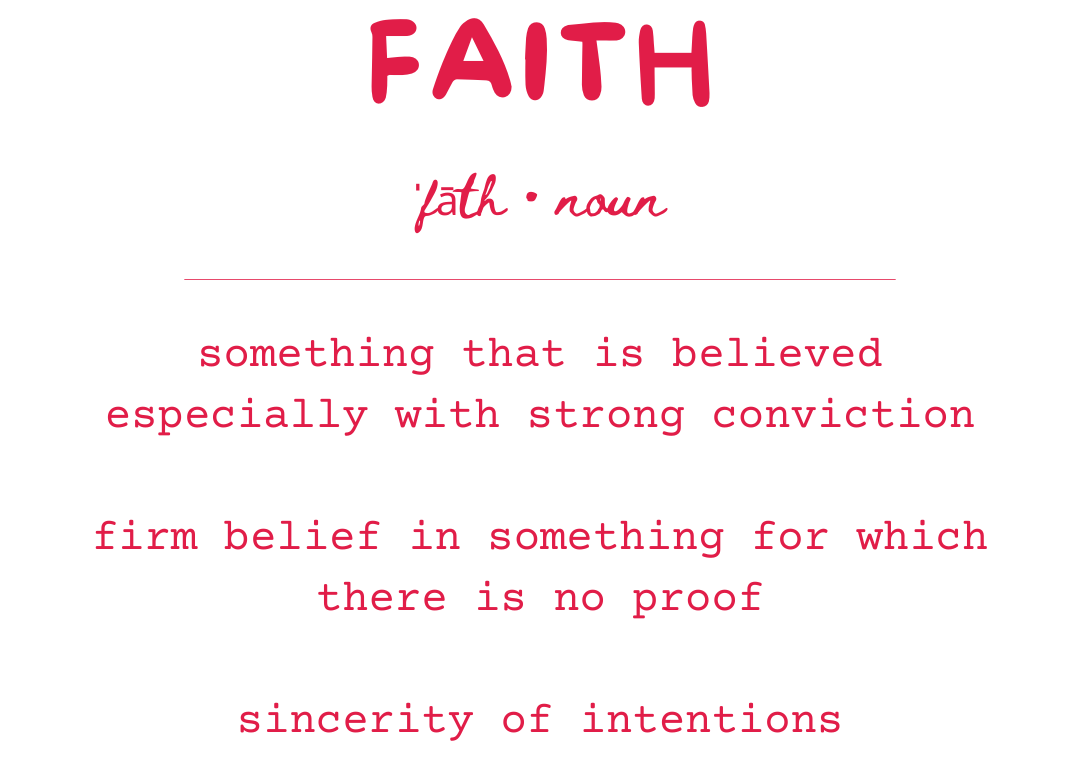
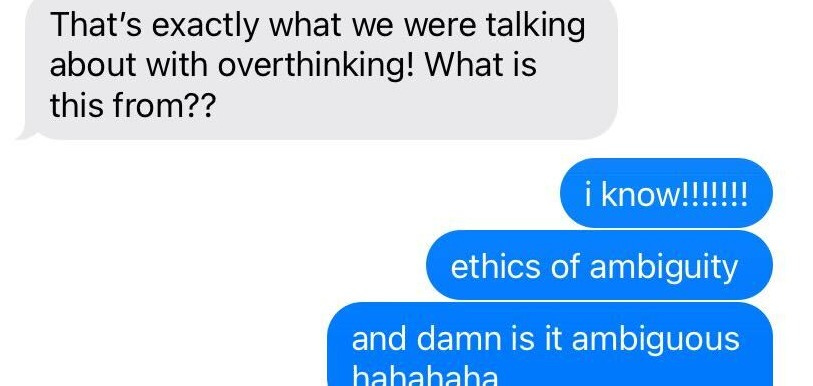
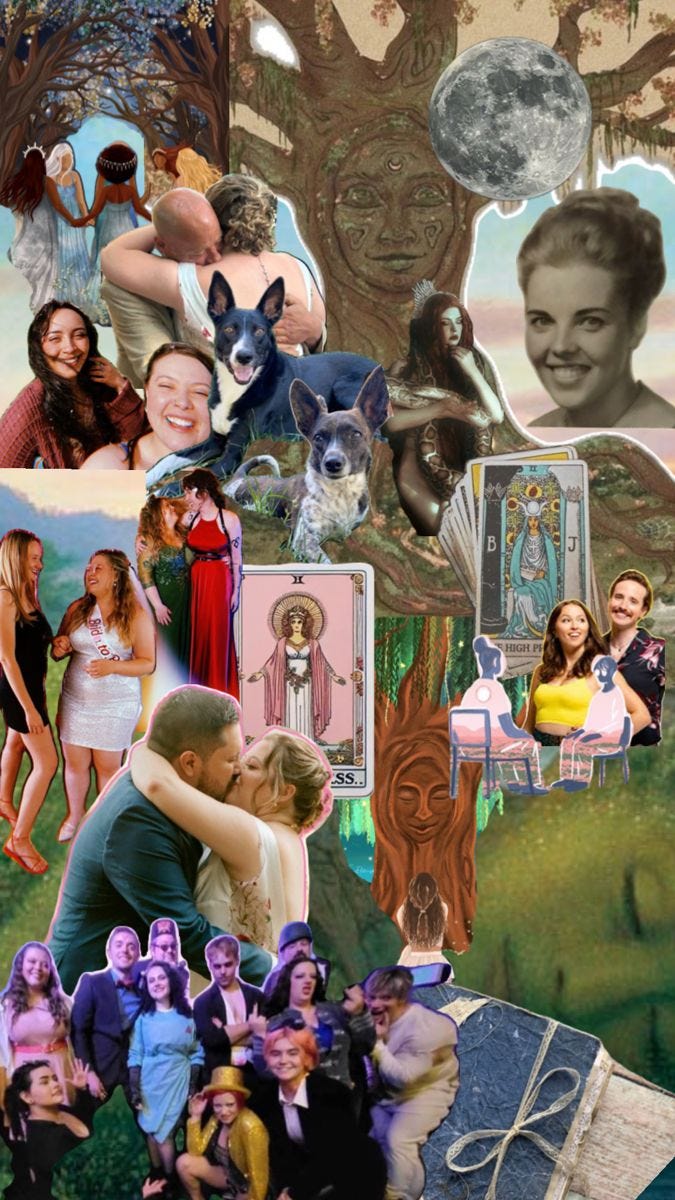

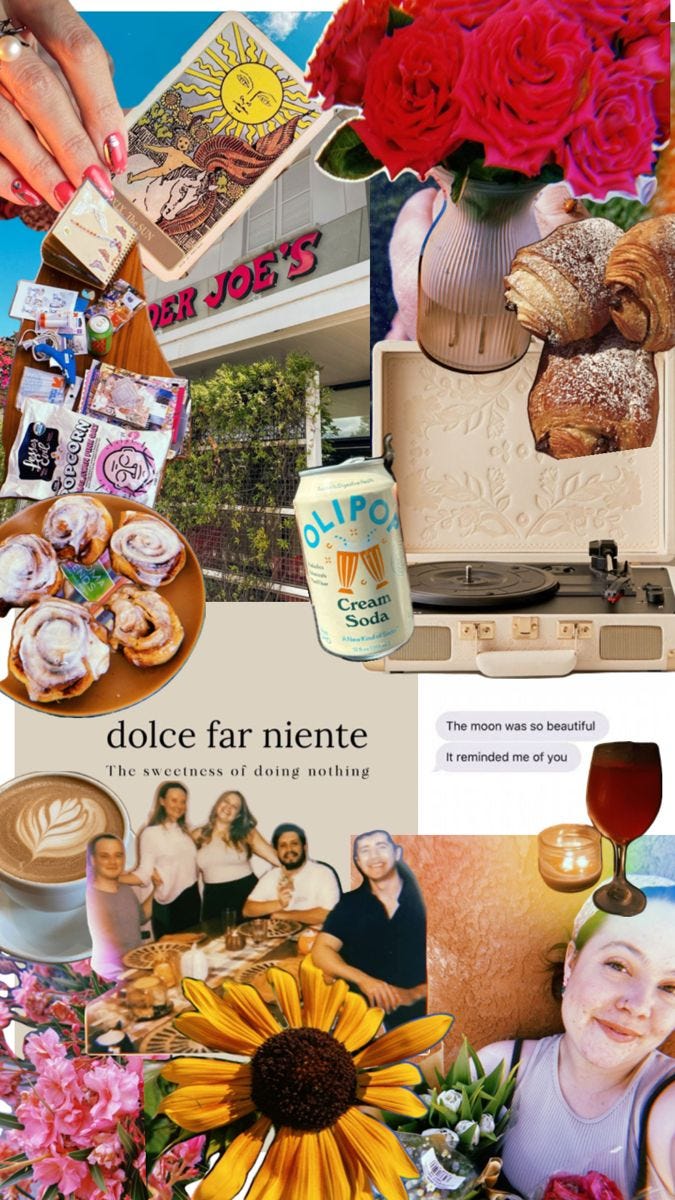
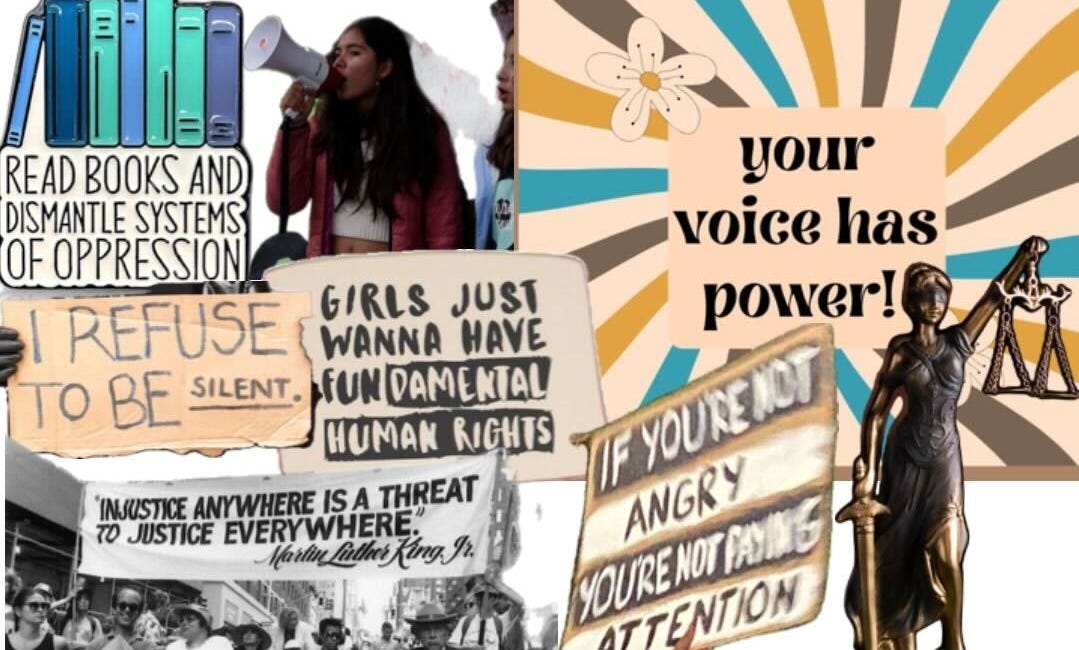

such a great read!
"What could be more spiritual than not knowing?" I totally agree with this! Loved this piece, Samantha!